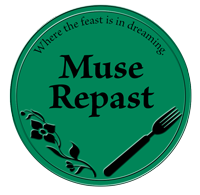Qoheleth Chapter Two
I continue in transcribing a translation from the Anchor Bible commentary by R.B.Y. Scott-
1 I said to myself, “Let me experiment with pleasure and have a good time!”, but this also turned out to be [unsubstantial as] a vapor. 2 Merrymaking, I concluded, is foolishness; and as for pleasure, what does it accomplish? 3 I investigated by stimulating my body with wine while my reason remained in control, and by putting my hand to folly–so that I might discern whether this is good for men to do beneath the sky, in the brief span of their lives. 4 I carried out great undertakings, I built myself houses, I planted vineyards, 5 I made for myself gardens and parks and planted in them trees bearing all kinds of fruit. 6 I constructed reservoirs from which to irrigate the plantation of young trees. 7 I bought slaves and slave girls, in addition to my household retainers; my possessions of cattle and sheep also were greater than those of all who had preceded me in Jerusalem. 8 I amassed also silver and gold, such private treasure as kings and satraps have. I provided myself with male and female singers, and with the pleasures of the flesh, concubine after concubine. 9 As I became greater than any who had been before me in Jerusalem, still my wisdom stayed with me. 10 Nothing my eyes desired to see was denied them; I did not inhibit my thoughts from any kind of pleasure. Indeed, my mind drew delight from all my activities, and this was what I got from it all. 11 For when I considered all the things that I had done and the energy I had expended in doing them, it was clear that the whole of it was futility and a grasping at the wind, and none of it was profitable [for a man’s life] under the sun. 12 Then I turned my attention to a comparison of wisdom with foolishness and stupidity. [For what can a man do who comes after a king but what he (the king) has done already?] 13 It had seemed to me that wisdom surpasses folly as light surpasses darkness; 14 the wise man has eyes in his head, while the fool goes forward blindly. But then I realized that the same chance happens to them both. 15 I said to myself, “Since I shall meet the same fate as the fool, how then is wisdom an advantage?” So I concluded that this too was futility. 16 For of the wise man, as of the fool, there is no lasting memory; soon in days to come everything will have been forgotten. How alike in death are the wise man and the fool! 17 So I came to hate life, because it depressed me that all man’s activities under the sun are only a vapor and a clutching at he wind. 18 Thus I came to detest all that I had achieved under the sun, which I would leave to the man who comes after me. 19 Who knows whether he will be a wise man or a fool? Yet he will be in command of all the fruits of my toil and wisdom during my lifetime. Here again is futility. 20 So once more I fell into despair about all that I had achieved under the sun, 21 since a man who has labored with wisdom, knowledge, and skill must hand over what he possesses to one who has not worked for it. This, too, is futility and a great evil. 22 For how does a man benefit from all the toil and stress of his lifelong struggle? 23 He spends all his days in the pains and vexation of his business; even in the night his mind has no rest. This too, is futility. 24 There is nothing better for a man than to eat and drink and find satisfaction in [doing] his work; even this, I came to see is in God’s hands. 25 For who can eat and rejoice apart from God? 26 Indeed, to a man whom he favors God assigns wisdom, knowledge, and happiness; whereas to one who offends him, he gives the task of gathering and collecting what the man must [then] hand over to the one God favors. This also is futility and a grasping at the wind.
—
If the first chapter of Qoheleth was hard to read and keep track of its meaning, the second is even more a vain chasing after the wind. But here, we get the first real Glimpse of the conclusion of all of Qoheleth’s despair of our works and worries. The most essential verse, is verse 24. It repeats a total of five times in Qoheleth, so its importance cannot be understated. I said it best in my paper:
Luther puts this refrain as the conclusion of the entire book. (LW 15, 93) He says [of verse 24] it is a “remarkable passage that explains everything preceding and following it.”(Ibid.) This is the clearest place where we get the gestalt of Qoheleth. The author “intends to forbid vain anxieties, so that we may happily enjoy the things that are present and not care at all about the things that are in the future, lest we permit the present moment, our moment, to slip away.”(Ibid.) By turning in on ourselves, and becoming anxious about the future, we will miss the gifts that God gives us in the everyday. All of our worrying and planning for the future are vanity! We should instead look to fellowship with one another, eat, drink, and be merry. A popular conflation of this text with Isaiah commonly adds: “for tomorrow we shall die.” But these words never show up in Qoheleth.”
The phrase that we should “eat drink and be merry” seems contradictory to the start of this chapter which appears to despair of merrymaking. But this is why the language of Qoheleth is challenging. Listening closely, we can see it is not the merrymaking but our experiments with it, and our attempts to make it our own that are vanity. Here in this passage it becomes more and more clear that what Qoheleth despairs of is not existence itself (we will see more appreciation of the beauty of it in chapter 3), but instead it is our works and righteousness of our works “under the sun.” It is the accomplishments of humans that are vain and chasing after the wind. The only hope is to trust in God’s hands, to find enjoyment in our toils where God gives it (not where we will it). Each thing that Qoheleth despairs of is clearly a doing on humanity’s part, a building, an accumulation of wealth or wisdom, etc. It is not the things themselves that lack, but our attempts at permanence and control over them. When Qoheleth “hates life” it is because of human “activities under the sun” being “only a vapor and a clutching at he wind.” (Qoheleth 2:17) We are all subject to the same fate of death no matter how many things we accomplish or lack in life. To turn a Lenten phrase: remember that we are dust, and to dust we shall return. But the end of all this is not despair, it is that God, and not humans are in control. It is only in God that there is true life, true righteousness, and true worth. It is for God, not human minds to decide what is good and what shall prosper or perish. And it is God that we should trust. It is God that provides both the Muse and the Repast.

